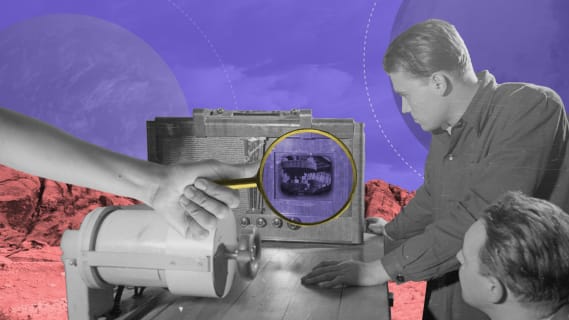When technology and business merge – meet our PHP Developers
What does the daily work of the product team at Boldare look like? How is the Agile approach manifested in our PHP work? What challenges do PHP Developers face? Learn more about this role from one of our experts.

Table of contents
I am a software developer at Boldare and my specialist area is the back end and PHP. On a daily basis – like my teammates – I also act in other roles as required, such as team admin, team representative, or team budget supervisor. I also maintain metrics and am responsible for gathering ideas for technical improvements in the product. Sometimes, I also support the recruiting team by assisting them as a technical recruiter in hiring developers.
Although I have a few interesting additional roles, my day-to-day work is mainly writing code, which means delivering value to both users and the client’s business. The products I work on are alive and have real users – so they are truly dynamic, and the needs keep changing. The business requirements might change drastically, requiring us to adjust our solution to the business needs. Sometimes the end users face issues on production and they need our quick support. My team’s job is to solve these challenges, to monitor user behavior, and to propose to the client solutions that will help to achieve their business goals.
Scrum flows in our veins
We have been working in Scrum for years at Boldare. Our team participates in all Scrum events as they are really valuable in our eyes. We have daily meetings with the team, during which we share blockers and work out tailored solutions. Separately, we conduct another daily catch-up meeting with the client. Why separately? Because with the client we can present our prepared solutions, report on what we have achieved, debate what we are planning, and raise any impediments the product owner should be aware of.
Retrospectives, sprint planning, refinement – we derive value from all these different kinds of meetings. That last one is especially practical because it involves checking whether we have everything necessary to start the next sprint. We go through the backlog and check the purpose of the tasks and user stories. We also consider what business problems they address. The product owner shares the priorities from the business perspective, giving us a clear view of the next sprint’s scope. The risk and improvement roadmap workshop is also important – it helps us identify risks and gather improvement proposals for the product.
Addicted to staying in touch
My team is interdisciplinary. I work with back end roles, QA, front end, and designers. When it comes to communication, I guess we are quite specific. Each day starts with a daily and then, usually, we spend the rest of our working hours on Google Meet. We don’t have our cameras on all the time, but we turn them on when we start a particular meeting. This kind of being “on the link” is a convenient solution that we developed ourselves. Since we work in a dispersed manner and each team member lives in a different city, we can achieve something like working in an office but online. Such a mode allows us to be in constant contact, which we truly need. It’s faster than typing on Slack and guarantees we have each other at hand. In addition, thanks to the friendly and relaxed atmosphere, we can chat about anything at any time and we strengthen team relations. I remember that after joining I was a bit surprised by this approach, but I very quickly came to value it highly. This kind of communication streamlines the work and allows us to gather knowledge that can’t be acquired from any knowledge base.
Feedback and support
When I think about my work at Boldare, I am most proud of my product team. The positive atmosphere, the high level of trust, and the huge amount of support that flows from all its members – these elements fill me with pride.
When any team member encounters any technical problem or is simply tired, the team notices and responds. We help each other not only as employees but also as friends. Thanks to trust and a culture of feedback, we have no difficulty raising blockers or difficulties. We give feedback in a way that doesn’t hurt anyone, just helps us grow. We often share it to praise someone, so the kudos culture works successfully here.
Business and technology merge
In my daily work at Boldare, I have a lot of contact with the clients, which I appreciate. Above all, it is a quick way to solve problems and implement improvements to the application. We don’t have proxies in the form of managers. I can directly talk to the product owner and explain an issue or a proposal.
We recently introduced “technical talks with the PO” in the team. It’s a grassroots initiative from the product owner, which allows them to better understand our duties and work. Technical talks are a half-hour slot once a week, which has boosted communication with clients and within the product team.
Phased approach to building products
Product building at Boldare is based on a phased approach. This simply means that there are different teams in the organization, divided according to the stage of product development (prototype, MVP, PMF, or scaling). When you join Boldare, you attend workshops that help you determine which phase you best fit into. Speaking about stages, I am a fan of the last one – scaling. Here, we expand products with more complex solutions. I believe that building products in phases not only influences effective development, but makes it very easy for developers. They can totally focus on developing their strengths and skills.
It’s always a good time to grow
Working as a PHP Developer requires constant learning. There is no time to stand still and self-development is incredibly important, but it is not always easy to find the time. That’s why I appreciate the opportunities for knowledge exchange at Boldare. There are a lot of experts specializing in PHP and other languages here, to whom I can always turn with a question or ask for advice. We have plenty of space for knowledge exchange. I also get support in solving problems and technical challenges. The organization has special development budgets that can help you take the next step in your career. This is the case for me – recently, for example, I participated in a training session on domain-driven design. Previously, I also had a chance to attend an event storming workshop led by Mariusz Gil for the whole of Boldare. It’s worth mentioning that many employees use their development budgets to also gain knowledge at various IT conferences.
Why does Boldare stand out?
Compared to other companies I’ve worked for, Boldare puts a very strong emphasis on clients’ needs. Sometimes programmers are used to writing code in complete isolation from the relevant business goals, which I think is a great loss for them. I see a lot of value in boosting a business mindset and maintaining constant contact with the client – this approach allows for more efficient product building.
I appreciate the transparency and self-organization I have encountered here. I will admit that I have never worked in a place that was so transparent before. The openness and trust between all employees, the ability to talk about practically everything in your team, and the general ability to give and receive feedback – these are elements that surprised me positively.
At the same time, it’s a challenging place that requires, above all, an understanding that no one else, but you are responsible for your development and performance. There are no managers in holacracy, so no one leads you by the hand. The road to success requires self-reliance and a large dose of responsibility.
Curious about new opportunities at Boldare? Check out our career site and find your dream job now, or join our talent pool!
Share this article:







